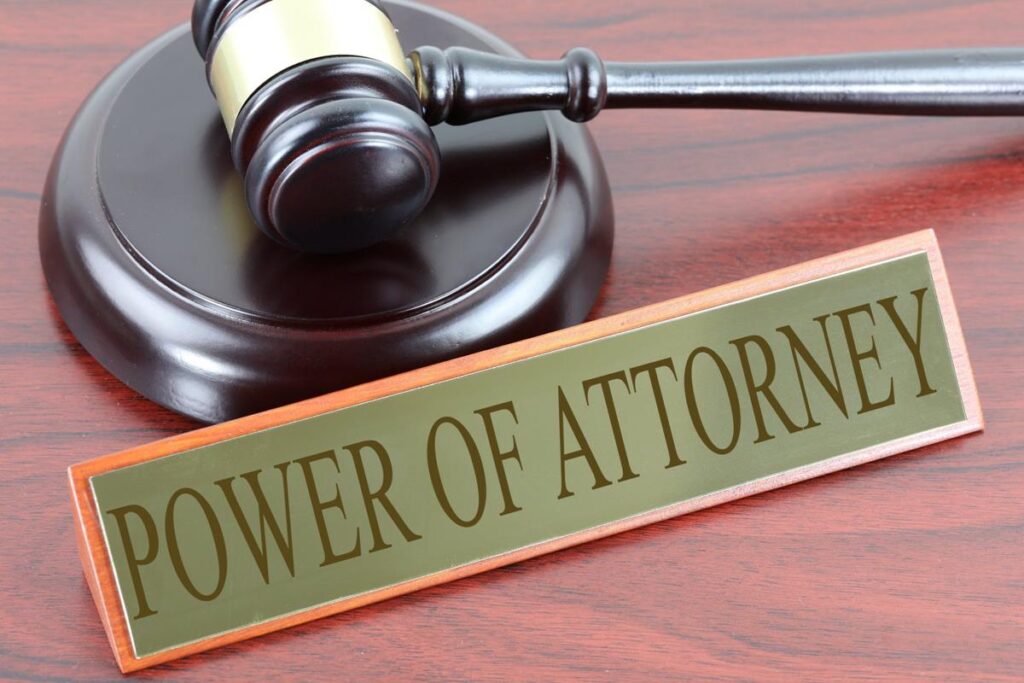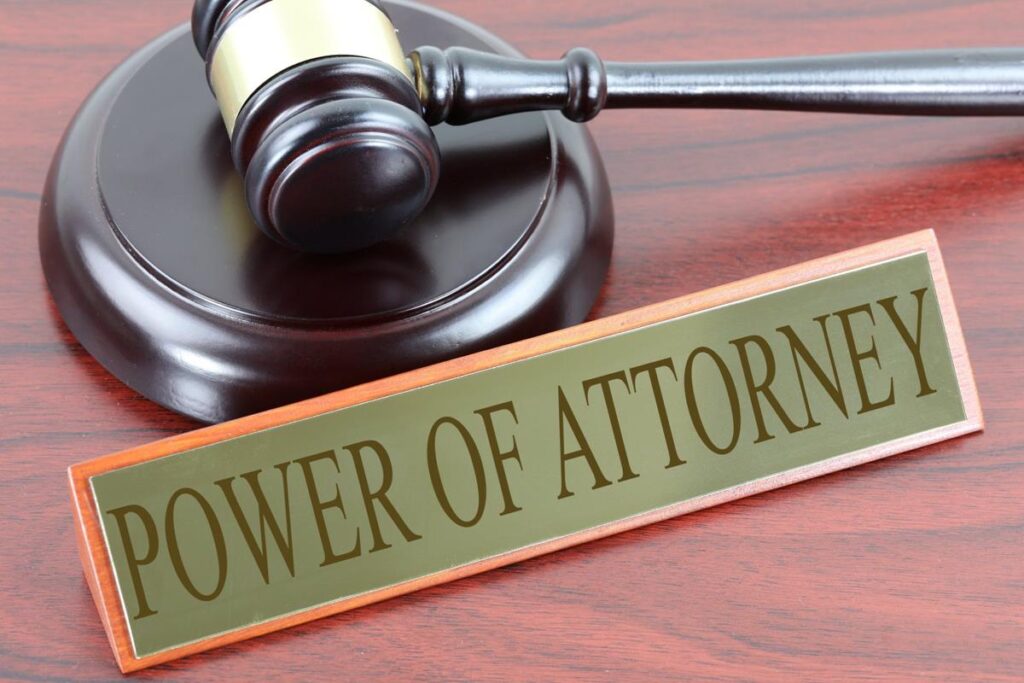Planning for your future care or managing the affairs of a loved one who can no longer care for themselves involves critical legal considerations. Two of the main options are Power of Attorney (POA) and Conservatorship. These legal arrangements allow someone else to make decisions on your behalf if you become incapacitated. However, there are important differences between the two that impact how much authority is granted and how it is monitored. This guide will explore the key distinctions, advantages, limitations, and real-world applications of POA and Conservatorship to help you make an informed decision.
Contents
- 1 Understanding Power of Attorney
- 2 Understanding Conservatorship
- 3 Key Differences Between POA and Conservatorship
- 4 The Process of Establishing POA
- 5 The Process of Obtaining Conservatorship
- 6 Key Considerations in Choosing POA or Conservatorship
- 7 The Role of the Court in Conservatorship
- 8 Financial Implications of POA and Conservatorship
- 9 Ethical and Emotional Considerations
- 10 Real-World Case Studies and Examples
- 11 Conclusion
- 12 Frequently Asked Questions
Understanding Power of Attorney
What is Power of Attorney?
A Power of Attorney is a legal document that gives one person, known as the agent or attorney-in-fact, the authority to manage specific affairs and make legally binding decisions on behalf of another person, known as the principal. This power can apply to financial, legal, healthcare, and other personal matters depending on the scope granted in the POA document.
Types of Power of Attorney
There are several types of POA that provide different levels of authority:
- General POA – This provides broad authority over the principal’s financial and legal affairs.
- Durable POA – This remains in effect even if the principal becomes mentally incapacitated or disabled.
- Medical POA – This allows the agent to make healthcare decisions if the principal is unable to do so.
Advantages and Limitations of POA
Some key advantages of POA include:
- The principal has flexibility in choosing their agent and defining the scope of authority.
- It allows someone to act on your behalf without requiring court intervention.
- The principal maintains autonomy over their affairs.
However, there are some limitations to be aware of:
- It may become invalid if the principal is legally declared incapacitated, unless it is a durable POA.
- There is a risk of financial abuse or exploitation by the chosen agent.
- The scope of authority may be overly narrow or broad.

Understanding Conservatorship
What is Conservatorship?
Conservatorship is a legal arrangement where a judge appoints a responsible person or organization, known as the conservator, to care for another adult, known as the conservatee, who cannot care for themselves or manage their own finances.
Types of Conservatorships
There are two main types of conservatorships:
- Conservatorship of the person – The conservator makes decisions about health care, housing, and other personal needs of the conservatee.
- Conservatorship of the estate – The conservator manages the conservatee’s financial matters and assets.
Advantages and Limitations of Conservatorship
Advantages of conservatorship include:
- It provides a legal framework for managing the care and finances of someone who cannot do so themselves.
- The court oversight offers protection against abuse.
- Conservators must submit regular reports about the conservatee’s care.
However, there are also limitations:
- The process to establish conservatorship can be lengthy and costly.
- The conservatee loses self-determination over their affairs.
- Conservators may not always act in the best interests of the conservatee.
Key Differences Between POA and Conservatorship
To summarize the main differences:
- Legal Authority – POA authority is granted directly by an individual, while conservatorship is established through a court proceeding.
- Duration – POA can be temporary or indefinite. Conservatorship typically remains in effect until the conservatee regains capacity or passes away.
- Process – POA simply requires proper documentation, while conservatorship involves a formal legal process including investigations and hearings.
- Capacity – POA can be set up before or after incapacity, while conservatorship is only used when someone is unable to care for themselves.
The Process of Establishing POA
The process of establishing a POA includes:
- The principal selects an agent and determines the scope of authority. It’s crucial to choose a trustworthy agent.
- The POA document is created, listing powers granted to the agent. This is done with an attorney for customized documents.
- The POA is properly executed according to state laws, often requiring notarization of signatures.
- The agent may need to provide the POA document to third parties like banks as proof of authority.
- The principal can amend or revoke the POA as long as they still have mental capacity.
The Process of Obtaining Conservatorship
The process of establishing conservatorship includes:
- Someone must petition the court, providing evidence the individual is unable to care for themselves.
- The court investigates, which may include interviews, medical records, and an assessment by court investigators.
- A hearing is conducted where witnesses provide testimony about the individual’s mental capacity.
- If approved, the judge appoints a conservator and issues Letters of Conservatorship outlining duties.
- The conservator must submit ongoing accountings to the court about the conservatee’s care and finances.
Key Considerations in Choosing POA or Conservatorship
When deciding between POA and conservatorship, it’s important to consider:
- The person’s current mental and physical capacity and whether it’s diminishing.
- The scope of care and decision-making authority that is needed.
- Whether you want court supervision of the arrangement.
- The person’s preference for autonomy over their affairs.
- Whether the conservatorship is needed temporarily or long-term.
- The cost and complexity of establishing conservatorship through the courts.
The Role of the Court in Conservatorship
The court plays an extensive role in conservatorships. The court:
- Investigates the need for conservatorship before approving it.
- Selects and oversees the conservator, requiring inventories, financial accountings, and care plans.
- Has authority to remove conservators for failing to fulfill their duties.
- Can arrange visits to evaluate the care and living situation of the conservatee.
- Determines the continuation, limitation, or termination of the conservatorship if the conservatee regains capacity.
Financial Implications of POA and Conservatorship
- POA allows more individual discretion over how finances are managed. The agent has a fiduciary duty to act in the principal’s interest.
- Conservatorship requires court-monitored financial accountings. This provides oversight but also incurs court costs.
- POA does not require the principal to be deemed incapacitated, avoiding this complex legal process.
- An agent misusing funds can face civil or criminal charges. But the court process provides more built-in financial safeguards.
Ethical and Emotional Considerations
Making the choice between POA and conservatorship involves weighing emotional comfort, ethical factors, and quality of life:
- It’s vital to prioritize the wishes and dignity of the individual.
- Loss of independence can be emotionally difficult, so POA may be preferable.
- However, POA does not prevent self-neglect the way conservatorship can.
- Conservatorship provides more oversight, which may offer reassurance to worried family.
- There is a stigma associated with conservatorship – this should be considered.
- Communication with doctors, relatives, and the individual is essential in choosing wisely.
Real-World Case Studies and Examples
POA Allows Son to Assist Elderly Father with Finances
James, 70, was having difficulty keeping track of bills and assets. His son David was concerned. James’ doctor confirmed early dementia. James granted David durable POA so David could pay bills, monitor investments, and handle real estate matters, providing James oversight without sacrificing autonomy.
Limited Conservatorship for Man with Disabilities
Michael, 23, has an intellectual disability that makes managing money and medical care difficult. With his consent, his parents petitioned the court for limited conservatorship of his finances and medical decisions. The court granted conservatorship while preserving Michael’s rights to the greatest extent possible.
Conservatorship Protects Widow from Financial Abuse
Marianne, 80, was grieving her husband’s death when a new ‘friend’ convinced her to invest her savings into a fraudulent scheme. Her niece sued for conservatorship to stop the financial abuse. The court review found Marianne was distraught and susceptible to manipulation and appointed the niece as conservator to protect Marianne’s assets.
Conclusion
The choice between Power of Attorney and Conservatorship for your future care requires understanding your needs and priorities. While both allow someone else to act on your behalf if necessary, POA emphasizes autonomy while conservatorship prioritizes supervision and accountability. Consider factors like the powers needed, your trust in the agent or conservator, and whether court oversight would provide reassurance. Discuss your specific circumstances with legal counsel to craft arrangements giving you peace of mind and control over your wellbeing.
Frequently Asked Questions
Can a POA be revoked?
Yes, a principal can revoke a POA at any time as long as they retain mental capacity. It’s wise to provide written notice of the revocation.
Is a conservatorship permanent?
No, it’s not necessarily permanent. The court can terminate the conservatorship if evidence is provided the conservatee has regained their mental capacity and ability to care for themselves.
How can I ensure my agent or conservator acts responsibly?
For POA, carefully choose your agent and consult an attorney to outline their powers and duties. For conservatorship, the mandatory accountings to the court provide oversight of the conservator’s actions. You can also inform others of the arrangement who can help monitor.
Scott A. Bentley Attorney at Law in McHenry, IL is a debt relief and personal injury attorney dedicated to helping people in their time of need. He can assist in filing bankruptcy under the bankruptcy code or work with you through a personal injury case. His more than 25 years of experience provide him with the insight and knowledge you need when contending with difficult legal issues. Scott Bentley bankruptcy services stop: Creditor harassment, Lawsuits, Garnishments, Foreclosures, Repossessions, By filing for chapter 7 or 13 bankruptcy with Scott Bentley, you’ll also be able to create personal reorganization plans that serve to resolve individual bankruptcy issues. He and his staff are committed to providing you with dignified service and the respect you deserve. Just because you owe someone or some company money doesn’t mean you forfeit your rights. With Mr. Bentley you can be sure you will receive personalized attention and aggressive legal representation. The firm is proud to

